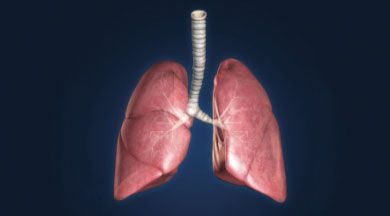Managing Adverse Events Associated With Targeted Agents for NSCLC
Targeted agents, such as afatinib (Gilotrif) and erlotinib (Tarceva), ushered in a new paradigm for treating patients with non-small cell lung cancer (NSCLC) who have an EGFR mutation.
lung

Targeted agents, such as afatinib (Gilotrif) and erlotinib (Tarceva), ushered in a new paradigm for treating patients with non-small cell lung cancer (NSCLC) who have an EGFR mutation. For these patients, experts note that EGFR inhibitors offer less toxicity and better activity than conventional chemotherapy, but there are adverse events associated with these agents, especially potential gastrointestinal and dermatologic effects.
Denise O’Dea, NP, a nurse practitioner at Mount Sinai Medical Center, recently sat down with Oncology Nursing News to discuss these adverse events and what nurses can do to help patients manage their symptoms.
Oncology Nursing News: What are the some of the adverse events associated with EGFR inhibitors?
Denise O’Dea: When we have a new patient starting on afatinib, for example, or a patient that’s ongoing on afatinib, we want to make sure that we’re aware of the most common side effects, which include diarrhea, rash, and stomatitis. We want to make sure that patients are prepared at home, and I usually tell patients to have a box of antidiarrheal medication in the house so that they’re not experiencing diarrhea and have nothing to control it.
We want to treat symptoms very early on. The most severe symptoms happen within the first 6 weeks of treatment, so if we can manage these side effects through that time period, patients can continue on the drug at an appropriate dose without reductions for a longer period of time.
How can patients avoid stomatitis?
Keeping a clean, healthy mouth is important. We recommend very soft toothbrushes or sponges for the mouth if a toothbrush is too much. We want to use non-alcohol mouthwashes, (99% of commercial mouthwashes these days have alcohol in them). So we have patients make their own type of rinse with baking soda and a little bit of salt and water and dilute that and rinse, at least four times per day and most importantly at night before bedtime, because that’s the time of day that you build the most bacteria in your mouth.
Have you had any experience in proactively treating rash in patients receiving these targeted agents with tetracycline?
Some people preemptively treat with tetracycline right off the bat, some people wait for the rash to occur, and some people don’t give antibiotics at all. In our practice, what we try to do is follow patients very closely when they initially start treatment. We see them within the first week and then again shortly after that. If they’re developing a rash, they’re instructed to call right away and we see them.
You want to moisturize these rashes very, very well. Although they look acne-like, they don’t act acne-like. They’re not an acne rash, so you don't want to dry them out. You want to moisturize them and protect from infection. What we also have patients do is sometimes use antibiotic gels to the face or corticosteroid creams
The use of antibiotics we save for the patient that has very severe, infectious-looking rash. The other side of the coin is that if you preemptively treat patients with tetracycline, then they’ll remain on tetracycline for who knows how long and those types of medications come with side effects as well. We have had very good success with treating patients only that needed antibiotics for a short course of 10 days and then stopping it, and patients do quite well over time. But, it is a controversial area. It’s been researched, it’s been studied, and it still remains controversial.
What specific advice do you give patients for managing GI symptoms?
We want to manage patients early on. At the first sign of symptoms, start to treat—using antidiarrheal medications very liberally and making sure that patients don’t stop them too soon. If they’re starting to realize that the diarrhea is going away, sometimes they stop the antidiarrheal medication, and it will return. We tell patients to wait at least 12 hours without any diarrhea before stopping the antidiarrheal medication. And early treatment, again, is very important.
Do you find that patients tend to be reluctant to admit when they are experiencing side effects?
If patients are aware of the side effects and good nursing education happens for the patient prior to them starting the medications, they will not be afraid to tell you about the medications. The biggest fear for patients when they have side effects is that you’ll decrease their drug or take their drug away. If you educate them well, treat them early, and work with them in managing the symptoms, oftentimes you can avoid dose reductions. So, it’s just about making patients aware that we need to know—and we need to know early—because then we can really avoid taking away their medications or reducing the doses.
What does the future have in store for the treatment of lung cancer?
We do have quite a few trials open right now, and many of the newer trials are in immunotherapies. It's a very exciting time in lung cancer with another new class of drugs, specifically the PD-L1 trials that are ongoing, and other immunotherapy trials. I think we’ll see some changes in the way we treat lung cancer in the near future.


